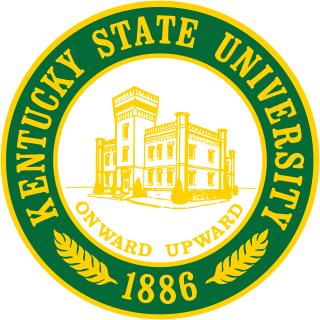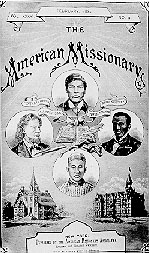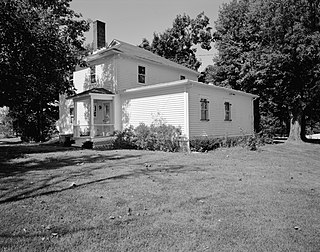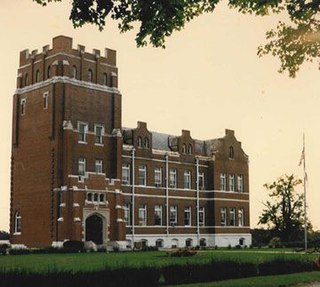Related Research Articles

Andrew Jackson Young Jr. is an American politician, diplomat, and activist. Beginning his career as a pastor, Young was an early leader in the civil rights movement, serving as executive director of the Southern Christian Leadership Conference (SCLC) and a close confidant to Martin Luther King Jr. Young later became active in politics, serving as a U.S. Congressman from Georgia, United States Ambassador to the United Nations in the Carter Administration, and 55th Mayor of Atlanta. He was the first African American elected to Congress from Georgia since Reconstruction, as well as one of the first two African Americans elected to Congress from the former Confederacy since Reconstruction, alongside Barbara Jordan of Texas. Since leaving office, Young has founded or served in many organizations working on issues of public policy and political lobbying.

Wiley College is a private historically black college in Marshall, Texas. Founded in 1873 by the Methodist Episcopal Church's Bishop Isaac Wiley and certified in 1882 by the Freedman's Aid Society, it is one of the oldest predominantly black colleges west of the Mississippi River.

The National Urban League, formerly known as the National League on Urban Conditions Among Negroes, is a nonpartisan historic civil rights organization based in New York City that advocates on behalf of economic and social justice for African Americans and against racial discrimination in the United States. It is the oldest and largest community-based organization of its kind in the nation. Its current President is Marc Morial.
Bishop College was a historically black college, founded in Marshall, Texas, United States, in 1881 by the Baptist Home Mission Society. It was intended to serve students in east Texas, where the majority of the black population lived at the time. In 1961 the administration moved the college into Dallas, Texas. It closed in 1988.

Whitney Moore Young Jr. was an American civil rights leader. Trained as a social worker, he spent most of his career working to end employment discrimination in the United States and turning the National Urban League from a relatively passive civil rights organization into one that aggressively worked for equitable access to socioeconomic opportunity for the historically disenfranchised. Young was influential in the United States federal government's War on Poverty in the 1960s.

Benjamin Lawson Hooks was an American civil rights leader and government official. A Baptist minister and practicing attorney, he served as executive director of the National Association for the Advancement of Colored People (NAACP) from 1977 to 1992.

Martin Luther King Sr. was an African-American Baptist pastor, missionary, and an early figure in the Civil Rights Movement. He was the father and namesake of the civil rights leader Martin Luther King Jr. He was the senior pastor of Atlanta's Ebenezer Baptist Church from 1931 to 1975.

Kentucky State University is a public historically black land-grant university in Frankfort, Kentucky. Founded in 1886 as the State Normal School for Colored Persons, and becoming a land-grant college in 1890, KSU is the second-oldest state-supported institution of higher learning in Kentucky. In fall 2019, total undergraduate enrollment was 2,029 with a total graduate enrollment of 142.

The American Missionary Association (AMA) was a Protestant-based abolitionist group founded on September 3, 1846 in Albany, New York. The main purpose of the organization was abolition of slavery, education of African Americans, promotion of racial equality, and spreading Christian values. Its members and leaders were of both races; The Association was chiefly sponsored by the Congregationalist churches in New England. The main goals were to abolish slavery, provide education to African Americans, and promote racial equality for free Blacks. The AMA played a significant role in several key historical events and movements, including the Civil War, Reconstruction, and the Civil Rights Movement.

Theodore "Ted" Carlisle Landsmark is an American educator and lawyer. Landsmark is currently distinguished professor of public policy and urban affairs and director of the Kitty and Michael Dukakis Center for Urban and Regional Policy at Northeastern University. His research interests include diversity in design, environmental design, design education, higher education administration, community-based economic development, public policy, historic preservation, and African American art and artisanry.

Richard Robert Wright Sr. was an American military officer, educator and college president, politician, civil rights advocate and banking entrepreneur. Among his many accomplishments, he founded a high school, a college, and a bank. He also founded the National Freedom Day Association in 1941.
The civil rights movement in Omaha, Nebraska, has roots that extend back until at least 1912. With a history of racial tension that starts before the founding of the city, Omaha has been the home of numerous overt efforts related to securing civil rights for African Americans since at least the 1870s.

The Whitney Young Birthplace and Museum is a historic house museum on the campus of the former Lincoln Institute in rural Shelby County, Kentucky near Shelbyville, Kentucky. It was the birthplace and childhood home of Whitney M. Young Jr. (1921–71), an American civil rights leader. Young became prominent for his leadership of the National Urban League between 1961 and 1971. The house is now managed by the Lincoln Foundation, a successor to the Lincoln Institute, as a museum to its and Young's history. The house appears on the National Register of Historic Places and was designated as a National Historic Landmark in 1984.

The Lincoln Institute was an all-black boarding high school in Shelby County, Kentucky from 1912 to 1966.
Long School was once located at 2520 Franklin Street in the Near North Side area of North Omaha, Nebraska, United States. Long the focal point of the surrounding neighborhood, Long School was one of Omaha's "black schools". In 1952 it was identified as being the only school in Omaha with a 100% African-American student body population. The first two African-American teachers in public education in Omaha were assigned to Long School in 1940. In 1947 the first African-American principal in Omaha, Eugene Skinner, was appointed to the school.

James Madison Nabrit Jr. was a prominent American civil rights attorney who won several important arguments before the U.S. Supreme Court, served as president of Howard University for much of the 1960s, and was appointed Deputy Ambassador to the United Nations by President Lyndon B. Johnson. His brother, Samuel M. Nabrit, was appointed to the U.S. Atomic Energy Commission. His son, James Nabrit III, was also a civil rights attorney.

Whitney North Seymour Sr. was an American attorney who worked primarily as a trial lawyer. He served as assistant solicitor general during the presidency of Herbert Hoover. In 1960, he was elected the 84th president of the American Bar Association. Seymour served for many years as the managing partner of the law firm Simpson Thacher & Bartlett.

Bernard Lafayette, Jr. is an American civil rights activist and organizer, who was a leader in the Civil Rights Movement. He played a leading role in early organizing of the Selma Voting Rights Movement; was a member of the Nashville Student Movement; and worked closely throughout the 1960s movements with groups such as the Student Nonviolent Coordinating Committee (SNCC), the Southern Christian Leadership Conference (SCLC), and the American Friends Service Committee.
In the United States, black conservatism is a political and social movement rooted in communities of African descent that aligns largely with the American conservative movement, including the Christian right. Black conservatism emphasizes social conservatism, traditionalism, patriotism, capitalism, and free markets. What characterizes a "black conservative" has changed over time, and proponents do not necessarily share the same political philosophy.

Eleanor Young Love (1922–2006) was an African-American librarian from Kentucky. She was the daughter of Whitney Young and the sister of Whitney Young, Jr. She worked at the Lincoln Institute., an all-black boarding high school in Lincoln Ridge, KY, formed when schools were segregated in Kentucky., where her father was president. She received her degree from Atlanta University, now Clark Atlanta University, her M.Ed. from the University of Louisville, and her D. Ed. from the University of Illinois.
References
- ↑ Smith, Gerald L.; McDaniel, Karen Cotton; Hardin, John A. (2015-08-28). The Kentucky African American Encyclopedia. University Press of Kentucky. p. 550. ISBN 978-0-8131-6066-5.
- ↑ Notable Kentucky African Americans
- ↑ "WHITNEY M. YOUNG SR". The New York Times. 1975-08-19. Retrieved 2023-09-09.
- ↑ Jet Magazine, 9/4/1975
- ↑ "Young, Whitney Moore". The Martin Luther King, Jr. Research and Education Institute. 1921-07-31. Retrieved 2023-09-09.